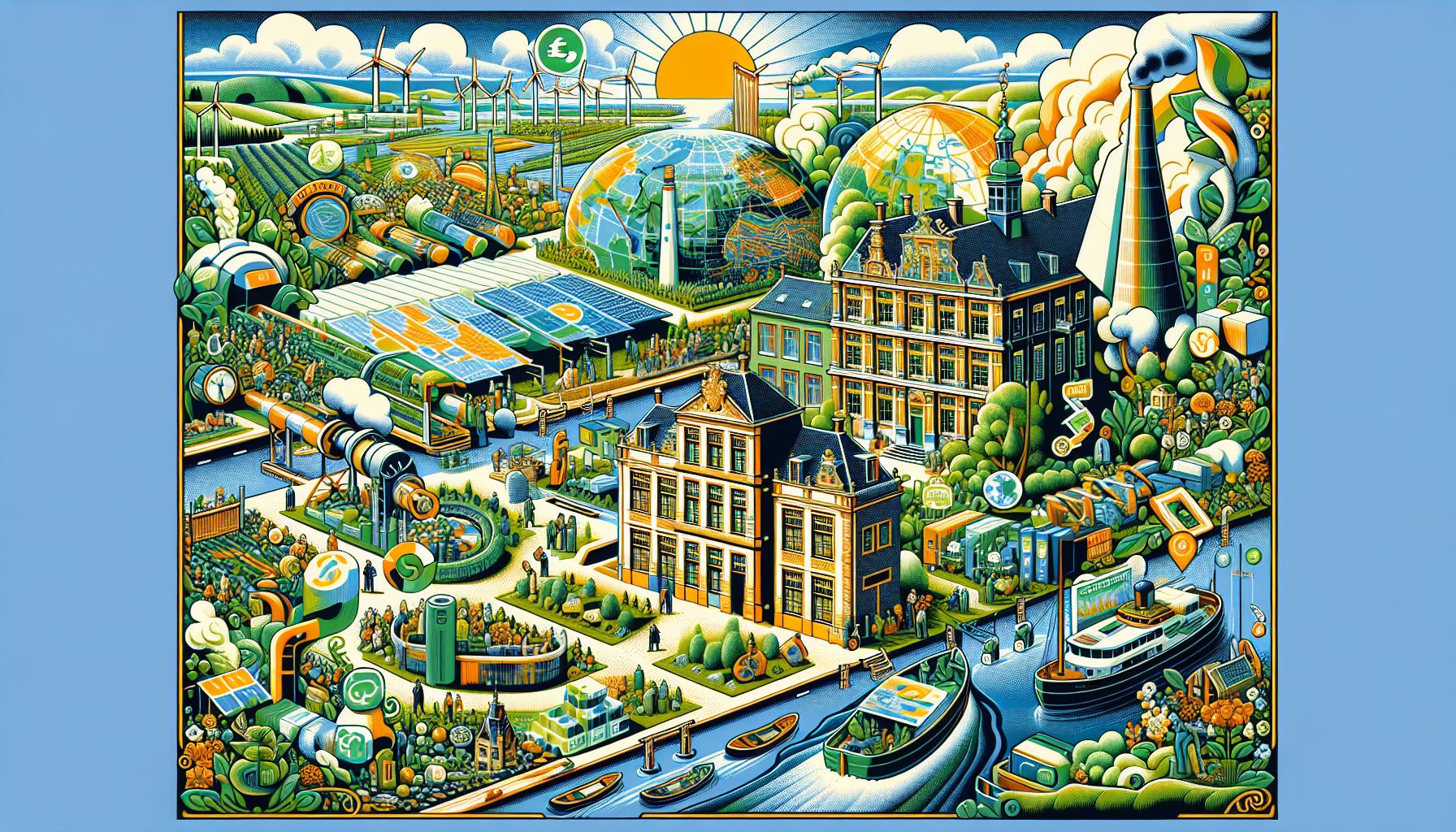Dutch Government Allocates €1.5 Billion for Sustainability Projects

The Dutch government has set aside €1.5 billion to support leading green technology and sustainable development initiatives in various provinces to meet national climate goals.
Focus on Future-Ready Agriculture
Approximately half of the allocated funds are directed towards future-ready agriculture. This includes measures aimed at innovations, extensification, and providing advice and support to entrepreneurs. These initiatives are designed to make agriculture more sustainable and resilient. The Dutch provinces had submitted detailed plans for these measures last year, which have since undergone multiple evaluations to ensure they contribute effectively to long-term agricultural sustainability and climate goals[1].
Nature and Water Conservation Efforts
In addition to agricultural sustainability, a significant portion of the funding is earmarked for nature and water conservation projects. These include the creation of new forests, restoration of natural habitats, and the adaptation of water levels in peat meadow areas. By focusing on these areas, the government aims to enhance biodiversity, improve water management, and mitigate the impacts of climate change[1].
Provincial Projects Underway
With the final evaluations complete, provinces are set to receive the funds promptly to commence their projects. Wageningen Economic Research played a crucial role in advising on the feasibility and risk management of the proposed measures. Only those initiatives that demonstrated clear potential for achieving water, nature, and climate goals, as well as sustainable agriculture, received approval[1].
Innovative Green Technology Trends
This funding aligns with broader global trends in sustainability. For instance, renewable energy sources like wind and solar power are increasingly replacing coal, with renewables accounting for 27% of total electricity generation in 2022, up from 18% in 2015[2]. Additionally, the market for green hydrogen is expected to grow significantly, with a projected value of $60.56 billion by 2030[2]. These trends underscore the importance of investing in innovative green technologies to combat climate change effectively.
Case Studies of Successful Projects
Looking at successful examples, the Erlenmatt Ost site in Basel, Switzerland, showcases the benefits of localized renewable energy production. This site, which houses over 500 people, won the Watt d’Or award for its innovative approach to energy self-sufficiency and sustainability. Such projects highlight the potential for similar initiatives in the Dutch provinces to achieve significant environmental benefits[3].
Conclusion and Future Outlook
The Dutch government’s allocation of €1.5 billion for sustainability projects marks a significant step towards achieving national climate goals. By focusing on future-ready agriculture, nature and water conservation, and leveraging innovative green technologies, these initiatives promise to make substantial contributions to environmental sustainability. As these projects unfold, they will serve as models for other regions looking to implement effective sustainability measures.

